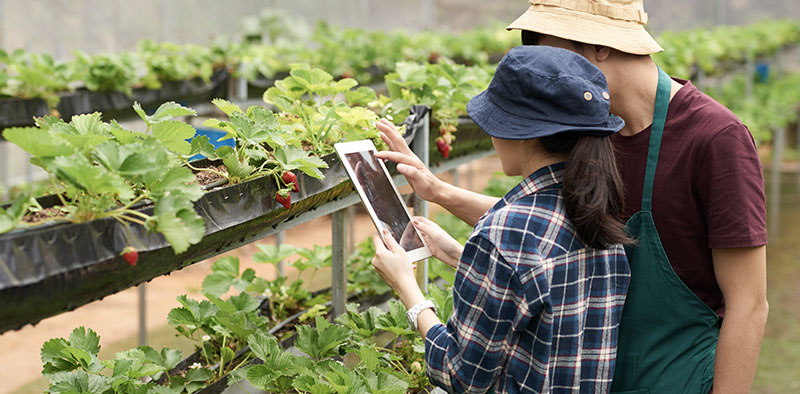Sustainable Farming

Industrial or intensive agriculture, which is highly mechanised, and characterised by large scale monoculture as well as heavy use of pesticides and chemical fertilisers, is a widely followed farming model the world over. This model comes at a great cost as it places significant pressure on our natural resources and the environment. It is now widely acknowledged that in the long run sustainable farming is the much better alternative. Sustainable farming is all about mimicking natural processes and trying to meet the needs of today while having only minimal effects on the environment.
Sustainable farming practices reduces the ecological footprint of farming, helps conserve water, contributes to soil fertility, reduces use of fertilisers and pesticides, and promotes biodiversity in crops grown. Ultimately this type of farming promotes a fine balance between food production and the preservation of the ecological system and our finite natural resources. Such farms are also safer and healthier for farmers, workers and the surrounding communities.
The common techniques used in sustainable farming include rotating crops in fields, avoiding pesticide use by nurturing presence of organisms that control pests, mixing crops, integrating croplands with livestock grazing and by growing crops that create their own nutrients. Water management systems like drip irrigation, precision irrigation, hydroponics etc are extensively engaged to minimise water loss. Water efficiency is also increased by selection of drought and salt tolerant crop species and indigenous plant varieties.



